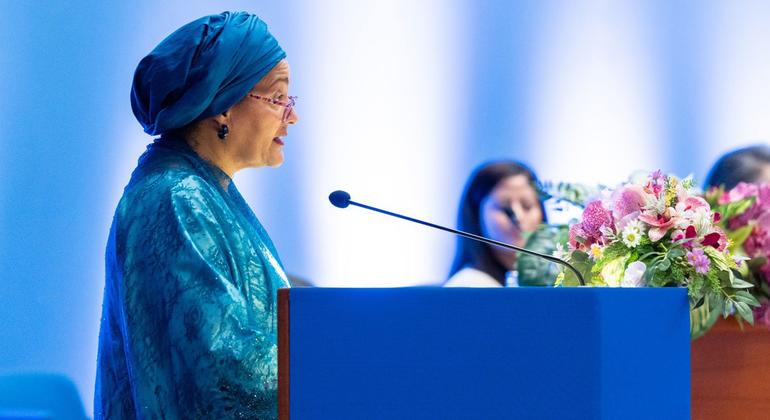
The 11th Asia-Pacific Forum on Sustainable Development (APFSD) kicked off in Bangkok, with participants echoing a compelling plea for nations to swiftly implement urgent actions, fostered by robust and sustained multilateral cooperation.
The stern warning suggested that countries risked lagging further behind in their pursuit of sustainable development goals amid recent global crises.
Addressing the gathering, Deputy Secretary-General, Amina Mohammed, emphasized the indispensability of international cooperation, stressing that the existing multilateral arrangements were inadequate for the task at hand.
“No country or region could achieve the Sustainable Development Goals or navigate contemporary global challenges alone,” she asserted, underlining the need for profound changes recognized by world leaders in September.
Organized by the UN Economic and Social Commission for Asia and the Pacific (ESCAP) and running in the Thai capital from February 20 to 23, the Forum serves as a crucial platform uniting key development stakeholders, including senior government and UN officials, the private sector, and representatives from youth and civil society. The event aimed to facilitate the exchange of experiences, mobilize regional action, and devise solutions.
Armida Salsiah Alisjahbana, UN Under-Secretary-General and Executive Secretary of ESCAP, identified six focal points for transformative actions: food systems, energy access and affordability, digital connectivity, education, jobs and social protection, and climate change, biodiversity loss, and pollution.
In a video address, Paula Narvaéz, President of the UN Economic and Social Council (ECOSOC), shared concerning data indicating that at the current pace of implementation, the Asia-Pacific region was on track to miss 90 per cent of the 118 measurable SDG targets by 2030.
Over the next four days, Forum participants were expected to conduct a thorough review of the region’s progress on specific SDGs, including on ending poverty, zero hunger, climate action, peace, justice, and strong institutions, and partnerships for the goals.
The outcomes would contribute to the global High-Level Political Forum in July and the Summit of the Future in September in New York.
On the sidelines, ESCAP, the Asian Development Bank (ADB), and the UN Development Programme (UNDP) jointly launched the Asia-Pacific SDG Partnership Report 2024 titled “People and Planet: Addressing the Interlinked Challenges of Climate Change, Poverty, and Hunger in Asia and the Pacific.”
The report highlighted the interconnected challenges and potential solutions, emphasizing the urgent need for concerted efforts to tackle climate change, poverty, and hunger in the region.



